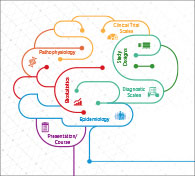Scientific advisory board
Our Scientific Advisory Board comprises internationally renowned, innovative-thinking experts with vast clinical and laboratory experience in central nervous system disorders. The Tris Scientific Advisory Board provides valuable scientific and clinical input on our development programs that enables us to focus and prioritize our internal and collaborative evidence-gathering efforts, ensuring optimal outcomes for our patients, their caregivers, and their healthcare providers.
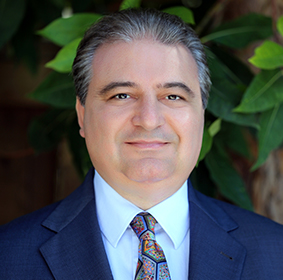
Dr Kalali is recognized globally as a leading innovator at the intersection of life sciences and technology, advising companies on building the future of their business at the board level or as a strategic advisor. He sits on the board of directors of both private and publicly traded companies.
He is Professor of Psychiatry at University of California San Diego, Editor of the journal Innovations in Clinical Neuroscience, and the Lead Editor of the book Essential CNS Drug Development, published by Cambridge University Press. He has authored over 150 peer-reviewed publications.
Dr Kalali was the Founding Chairman of the Executive Committee of the International Society for CNS Drug Development (ISCDD), a founding member of the International Society for CNS Clinical Trials and Methodology (ISCTM), where he serves on the Executive Committee, the Scientific Committee, and previously chaired the Membership and Publication Committees. He is also a founder and Co-Chair of the Scientific Program Committee of the CNS Summit.
Previously, for almost 20 years, he was the Global Head of the Neuroscience Center of Excellence at Quintiles, now known as IQVIA. In this role, he led for the enterprisewide strategy for neuroscience, encompassing drug development and health care services. He was responsible for numerous successful drug development programs that have led to new treatments for patients.
Dr Kalali regularly presents at national and international scientific meetings, and lectures frequently on drug development, innovation, technology, digital medicine and health.
He has been involved in initiatives by the Institute of Medicine Forum on Drug Discovery, Development, and Translation, as well as the NIH FAST and the NIH NCATS New Therapeutic Uses program.
His awards include the ISCDD Leadership in CNS Drug Development Award in 2012.
Dr Kalali’s contributions have been recognized by life sciences media including The Medicine Maker’s 2019 Power List.
In 2005, 2006, 2008, 2011 and 2012 PharmaVOICE magazine named Dr Kalali as one its 100 most inspiring leaders in the life sciences as voted by his peers. In 2014 he was honored with the PharmaVOICE Inaugural Red Jacket award, recognizing those who have been most lauded by their peers since the awards began.

Geraldine Dawson is the William Cleland Distinguished Professor of Psychiatry and Behavioral Sciences at Duke University, where she also is Professor of Pediatrics and Psychology & Neuroscience. Dawson is the Director of the Duke Institute for Brain Sciences, whose mission is to promote interdisciplinary brain science and translate discoveries into solutions for health and society. Dawson also is Director of the Duke Center for Autism and Brain Development, an NIH Autism Center of Excellence, which is an interdisciplinary research program and clinic, aimed to improve the lives of those with autism through research, education, clinical services, and policy. Dawson is Associate Director of the Marcus Center for Cellular Cures, which aims to discover cellular treatments that can improve outcomes and quality of life for individuals with autism.
Dawson is a highly cited (Google Scholar “h-index = 122”) clinical psychologist and neuroscientist, having published >300 articles and 12 books on early detection and treatment of autism and brain development. Using electrophysiological techniques, Dawson’s lab discovered differences in brain circuitry related to face processing in autism, apparent even before symptom onset, and later defined a lifelong brain characteristic (delayed N170 face-sensitive ERP) that was accepted as the first biomarker for a neurodevelopmental disorder into FDA’s Biomarker Qualification Program. Dawson’s pioneering studies were among the first to describe the emergence of autism symptoms during infancy, leading to new screening tools. Dawson co-created the Early Start Denver Model, an early autism intervention shown to improve behavioral outcomes, which has been translated into 17 languages and is used worldwide. Her work showed for the first time that early intervention can normalize aspects of brain activity in children with autism, changing the field’s view of brain plasticity in autism, a finding recognized by TIME Magazine as one of the top 10 medical breakthroughs of 2012. Dawson previously served as President of the International Society for Autism Research and is currently a member of the NIH Interagency Autism Coordinating Committee (IACC) which develops the federal strategic plan for autism research, services, and policy. Dawson was Founding Director of the University of Washington (UW) Autism Center and the Duke Center for Autism and Brain Development, both highly regarded interdisciplinary autism centers. She served as Director/PI of 5 NIH P50 Autism Centers of Excellence Programs (4 at UW, 1 at Duke). From 2008-2013, Dawson served as the first Chief Science Officer for Autism Speaks, an autism science and advocacy organization, where she oversaw US$25-30 million of annual research funding. From 1985-2008, Dawson was Professor of Psychology at the University of Washington. A strong advocate for persons with autism, Dawson has testified a number of times before the US Congress in support of major autism legislation and was appointed by the U.S. Secretary for Health and Human Services for two terms to the DHHS IACC. Dawson was awarded the American Psychological Association Distinguished Career Award (Div53); Association for Psychological Science Lifetime Achievement Award; Clarivate Top 1% Cited Researcher Across All Scientific Fields; NIH Top Research Advances of the Year Award (2007, 2008, 2009, 2010, 2012, 2013, 2015, 2016, 2017, 2018); Autism Society of America Award for Research Contributions; Autism Society Medical Professional of the Year; and Autism Society Award for Valuable Service. Dawson is a Fellow of the American Psychological Society and American Psychological Association, and is Associate Editor or on editorial boards of four scientific journals.

Stephen Faraone, PhD is a Distinguished Professor in the Departments of Psychiatry and Neuroscience & Physiology at SUNY Upstate Medical University and Director of Research for the Department of Psychiatry. He is also Senior Scientific Advisor to the Research Program Pediatric Psychopharmacology at the Massachusetts General Hospital and a lecturer at Harvard Medical School. Professor Faraone studies the nature and causes of mental disorders in childhood and has made contributions to research in psychiatric genetics, psychopharmacology, diagnostic issues and methodology.
An author on over 1000 journal articles, editorials, chapters and books, he was the eighth highest producer of High Impact Papers in Psychiatry from 1990 to 1999 as determined by the Institute for Scientific Information (ISI, Science, 2000, Vol 288, pg 959). In 2005, ISI determined him to be the second highest cited author in the area of Attention Deficit Hyperactivity Disorder (http://tinyurl.com/y27bljqf) and in 2013 he was the third most highly cited researcher in psychiatry and psychology. (http://academic.research.microsoft.com/). From 2014 to 2019 he has been listed as a highly cited researcher by Thomson Reuters/Clarivate Analytics. In 2019, his citation metrics placed him in the top 0.01% of scientists across all fields http://tinyurl.com/y39c25sa. His lifetime h-index as of December 2019 was 205.
Prof. Faraone is Editor for the journal Neuropsychiatric Genetics and Program Director of the educational website www.adhdinadults.com. He is President of the World Federation for ADHD and a Board member for the American Professional Society of ADHD and Related Disorders. He founded the ADHD Molecular Genetics Network in the 1990s and was a founding member of the Psychiatric Genomics Consortium’s Coordinating Committee.
In 2002, Prof. Faraone was inducted into the CHADD Hall of Fame in recognition of outstanding achievement in medicine and education research on attention disorders. In 2008, he received the SUNY Upstate President’s Award for Excellence and Leadership in Research. In 2009 he was awarded Alumni Fellow status at the University of Iowa in recognition of his outstanding contributions to society and his profession. In 2010 he received the Chancellor’s Award for Excellence in Scholarship and Creative Activities from the State University of New York. In 2013, he was awarded the title of Distinguished Professor by the State University of New York, which is conferred upon faculty having achieved national or international prominence and a distinguished reputation within the individual’s chosen field. In 2018 he received the Lifetime Achievement Award from the International Society of Psychiatric Genetics and in 2019 he received the Paul Hoch Award from the American Psychopathological Association.
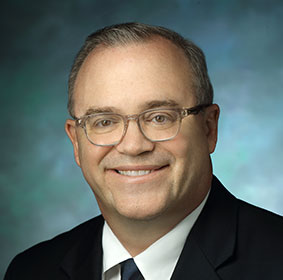
Dr Findling did his undergraduate work at Johns Hopkins University and went to medical school at Virginia Commonwealth University. Dr Findling then completed training in Pediatrics, Psychiatry, and Child & Adolescent Psychiatry as part of the “Triple Board” joint training program at Mt. Sinai in New York. He subsequently earned a Master of Business Administration degree at a joint program run by the London School of Economics, NYU Stern, and École des Hautes Études Commerciales de Paris.
After serving as the Rocco L. Motto, MD Chair of Child and Adolescent Psychiatry at Case Western Reserve University and Director of Child and Adolescent Psychiatry at University Hospitals of Cleveland, Dr Findling returned to Baltimore in 2012. There he served as the Director of Child and Adolescent Psychiatry, and the Leonard and Helen R. Stulman Professor of Child & Adolescent Psychiatry at Johns Hopkins. He also was the Vice President for Psychiatry Services and Research at the Kennedy Krieger Institute.
Dr Findling’s research endeavors have focused on pediatric psychopharmacology and serious psychiatric disorders in the young. Dr Findling has received national and international recognition as a clinical investigator. In 2019 he received the Norbert and Charlotte Rieger Award for Scientific Achievement from the American Academy of Child & Adolescent Psychiatry for the most outstanding scientific paper published in the Academy’s journal.
On January 1, 2020, Dr Findling returned to his medical school alma mater and became the chair of the VCU School of Medicine’s Department of Psychiatry.
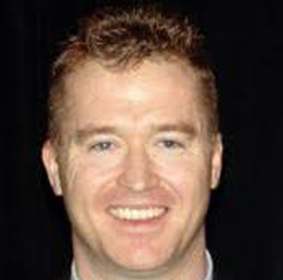
Dr Roger McIntyre is currently a Professor of Psychiatry and Pharmacology at the University of Toronto and Head of the Mood Disorders Psychopharmacology Unit at the University Health Network, Toronto, Canada. Dr McIntyre is also Executive Director of the Brain and Cognition Discovery Foundation in Toronto, Canada. Dr McIntyre is also Director for the Depression and Bipolar Support Alliance (DBSA) from Chicago, Illinois, USA. Dr McIntyre is also Professor and Nanshan Scholar at Guangzhou Medical University, and Adjunct Professor College of Medicine at Korea University. Dr McIntyre is also Clinical Professor State University of New York (SUNY) Upstate Medical University, Syracuse, New York, USA and Clinical Professor Department of Psychiatry and Neurosciences University of California School of Medicine, Riverside, California, USA.
Dr McIntyre was named by Clarivate Analytics in 2014, 2015, 2016, 2017, 2018 and 2019 as one of “The World’s Most Influential Scientific Minds.” This distinction is given by publishing the largest number of articles that rank among those most frequently cited by researchers globally in 21 broad fields of science and social science during the previous decade.
Dr McIntyre is involved in multiple research endeavours that primarily aim to characterize the association between mood disorders, notably cognitive function and medical comorbidity. His work broadly aims to characterize the underlying causes of cognitive impairment in individuals with mood disorders and their impact on workplace functioning. This body of work has provided a platform for identifying novel molecular targets to treat and prevent mood disorders and accompanying cognitive impairment.
Dr McIntyre is extensively involved in medical education, and he is a highly sought-after speaker at national and international meetings. He has received several teaching awards from the University of Toronto, Department of Psychiatry, and has been a recipient of the joint Canadian Psychiatric Association (CPA) / Council of Psychiatric Continuing Education Award for the Most Outstanding Continuing Education Activity in Psychiatry in Canada.
Dr McIntyre was the lead author for the Florida Best Practice Psychotherapeutic Medication Guidelines for Adults with Major Depressive Disorder and Bipolar Disorder. Dr McIntyre is also a contributor to the CANMAT guidelines for the treatment of Depressive Disorders and Bipolar Disorders. Dr McIntyre has published more than 600 articles/manuscripts and has edited and/or co-edited several textbooks on mood disorders.
Dr McIntyre completed his medical degree at Dalhousie University. He received his Psychiatry residency training and Fellowship in Psychiatric Pharmacology at the University of Toronto.
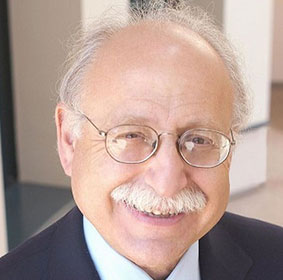
Alan F. Schatzberg received his MD from New York University in 1968. He did his psychiatric residency at the Massachusetts Mental Health Center from 1969-1972 and was Chief Resident, Southard Clinic in 1971-1972. He was also a Clinical Fellow in Psychiatry at Harvard Medical School.
After serving in the United States Air Force, he joined the staff at McLean Hospital and the faculty of Harvard Medical School in 1974. At McLean Hospital, he held a number of important positions including Service Chief, Interim Psychiatrist in Chief, Co-Director of the Affective Disorders Program (with Dr J Cole) and Director of the Depression Research Facility. In 1988, he became Professor of Psychiatry, Harvard Medical School and in 1991, he moved to Stanford University to become the Kenneth T. Norris, Jr Professor of Psychiatry and Behavioral Sciences and the Chair of the Department (until 2010). He has served as the President of the American Psychiatric Association, American College of Neuropsychopharmacology, and the Society of Biological Psychiatry. He is a member of the National Academy of Medicine.
Dr Schatzberg has been an active investigator in the biology and psychopharmacology of depressive disorders, exploring: norepinephrine systems in depression as a means of subtyping these disorders; the biological mechanisms that underlie the development of delusions in major depression through innovative therapeutic strategies; and the clinical psychopharmacology of nondelusional depression with a particular interest in chronic depression and pharmocogenetics. He has authored over 700 publications and abstracts, including the Manual of Clinical Psychopharmacology, whose eighth edition appeared in 2015 and which is co-authored by Dr Charles DeBattista. He also co-edited, with Dr Charles B. Nemeroff, the Textbook of Psychopharmacology whose fifth edition appeared in 2017. He is Co-Editor-in-Chief of the Journal of Psychiatric Research and sits on many other editorial boards, including Journal of Clinical Psychopharmacology, Psychoneuroendocrinology, Biological Psychiatry, and others. He is a past President of the American Psychiatric Association, American College of Neuropsychopharmacology (ACNP) and the Society of Biological Psychiatry and was also the Secretary-General of the International Society of Psychoneuroendocrinology. He has received numerous awards, including the 1998 Gerald L. Klerman, MD Lifetime Research Award from the NDMDA, the 2001 Gerald L. Klerman, MD Award from Cornell University Medical College, the 2001 Edward A. Strecker, MD Award from the University of Pennsylvania, the 2002 Mood Disorders Research Award from the American College of Psychiatrists, the 2002 American Psychiatric Association Award for Research, the 2005 Distinguished Service in Psychiatry Award from the American College of Psychiatrists, the 2005 Falcone Award from NARSAD, the 2013 Anna Monika Award, the 2014 Kraepelin Gold Medal from the Max Planck Institute of Psychiatry, the 2015 Gold Medal from the Society of Biological Psychiatry, the 2015 Lifetime Achievement Award of the ISPNE, 2017 Julius Axelrod Mentorship Award from the ACNP, etc. In 2003, he was elected into the Institute of Medicine of the National Academy of Sciences (National Academy of Medicine). He has received honorary doctorate degrees from the Pacific Graduate School of Psychology (2008), the Medical University of Vienna (2011), and the Maimonides University, Buenos Aires (2013).

Dr Stephen M. Stahl received his undergraduate and medical degrees from Northwestern University in Chicago, as a member of the Honors Program in Medical Education, and his PhD degree in pharmacology and physiology from the University of Chicago. Dr Stahl has trained in three specialties: internal medicine at the University of Chicago; neurology at the University of California, San Francisco; and psychiatry at Stanford University. He is board certified in psychiatry.
Dr Stahl has held faculty positions at Stanford University, the University of California at Los Angeles (UCLA), the Institute of Psychiatry London, the Institute of Neurology London, and, currently at the University of California Riverside, the University of California San Diego, the State University of New York Upstate Medical University at Syracuse and the University of Cambridge (UK). He also directs psychopharmacology services and academic programs for the five facility, 6500 patient California Department of State Hospital System where he has a leadership role in addressing violence and decriminalization of the seriously mentally ill. Stahl was formerly Executive Director of Clinical Neuroscience at the Merck Neuroscience Research Center in the UK for several years. Dr. Stahl’s major interests are dedicated to producing and disseminating educational information about diseases and their treatments in psychiatry and neurology.
Dr Stahl currently serves as editor-in-chief of CNS Spectrums. He is also past associate editor of Acta Psychiatrica Scandinavica, former clinical field editor for the International Journal of Neuropsychopharmacology and is currently on numerous editorial boards of other leading journals including the ACNP’s journal Neuropsychopharmacology. He has conducted numerous research projects during his career, awarded by the National Institute of Mental Health (NIMH), by the Department of Veterans Affairs (VA), and by the pharmaceutical industry. Author of over 550 articles and chapters with an H index of 62, and more than 1800 scientific presentations and abstracts, Dr Stahl is an internationally renowned clinician, researcher and teacher in psychiatry with subspecialty expertise in psychopharmacology. Dr Stahl has written 44 books and edited 14 others, including the best-selling and award-winning textbook, Stahl’s Essential Psychopharmacology, now in its fourth edition, and the best-selling and award winning clinical manual, Essential Psychopharmacology Prescriber’s Guide, now in its sixth edition. Dr Stahl has also published a novel, Shell Shock, a thriller that recounts the history of PTSD (post-traumatic stress disorder).
Lectures, courses, and preceptorships based upon his textbooks have taken him to dozens of countries on 6 continents to speak to tens of thousands of physicians, mental health professionals and students at all levels. His books have sold over a million copies, and his lectures and scientific presentations have been distributed as more than a million CD-ROMs, internet educational programs, videotapes, audiotapes and, programmed home study texts for continuing medical education to hundreds of thousands of professionals in many different languages. His courses and award-winning multimedia teaching materials are used by psychopharmacology teachers and students throughout the world.
Dr Stahl serves as a fellow of the ACNP (American College of Neuropsychopharmacology), of the British Association of Psychopharmacology (BAP) and of the CINP, where he was formerly vice president, and is a Distinguished Life Fellow of the American Psychiatric Association (APA). He also has served on numerous medical and scientific advisory boards for the pharmaceutical industry, for the biotechnology and medical information industry, and for various nonprofit and public service organizations, including appointment by the State of California and past Chair of the Medi-Cal Oversight Board for Medicines (Drug Utilization Review Board).
He has been awarded the International College of Neuropsychopharmacology (CINP) Lundbeck Foundation Award in Education for his contributions to postgraduate education in psychiatry and neurology. His books have won the British Medical Association’s Book of the Year Award, and recently awarded the 2016 British Medical Association’s First Place Award for his Digital Masterclass in Psychopharmacology accredited by Cambridge University Health Partners and the Department of Psychiatry at the University of Cambridge, UK, where he is a Fellow. His CME institute, the Neuroscience Education Institute (NEI), has been awarded accreditation with commendation, and his medical education company Arbor Scientia has been awarded the business of the year award from the local chamber of commerce. Dr Stahl is also the winner of the AE Bennett Award of the Society of Biological Psychiatry, the APA/San Diego Psychiatric Society Education Award, the UCSD department of psychiatry residency teaching award, and has been cited as one of “America’s Top Psychiatrists” and one of the “Best Doctors in America.” He was honored with the Distinguished Psychiatrist Award of the APA and gave the Distinguished Psychiatrist Lecturer for 2013. Recently, his alma mater Northwestern University honored him by naming their annual award for the best medical student going into psychiatry the Stephen Stahl award. Dr Stahl was named the 2016 David A. Mrazek Memorial Award Winner by the American Psychiatric Association and delivered the Mrazek Lecture at the 2016 annual meeting of the APA. In 2018 he was awarded an Honorary Doctorate of Science by Üsküdar University in Istanbul.




